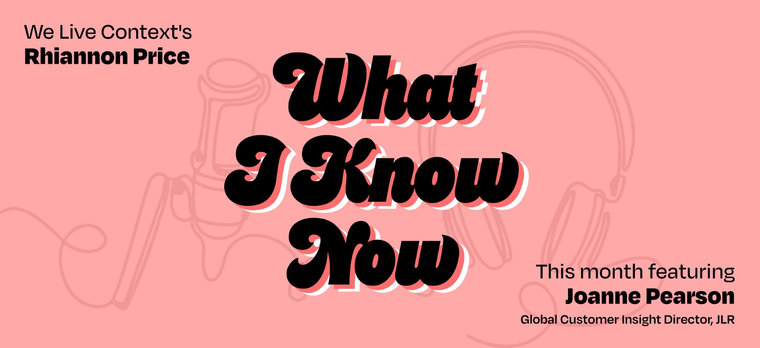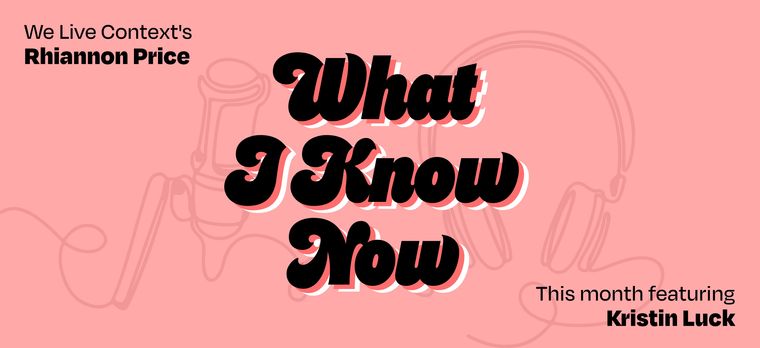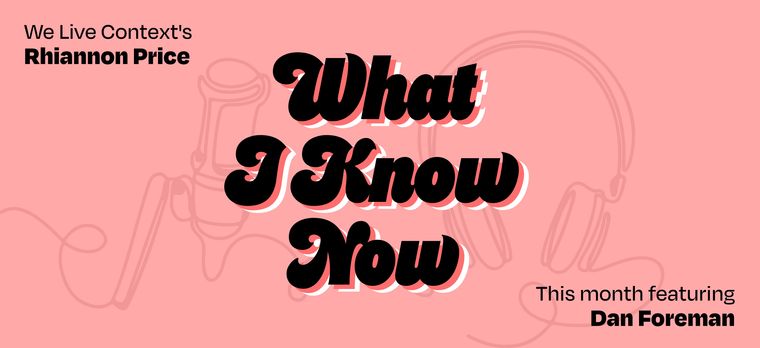What I Know Now... Chlöe Fowler
Each month, Rhiannon Price asks some familiar faces in the MRX world what they have learned about themselves and the industry on their journey so far.
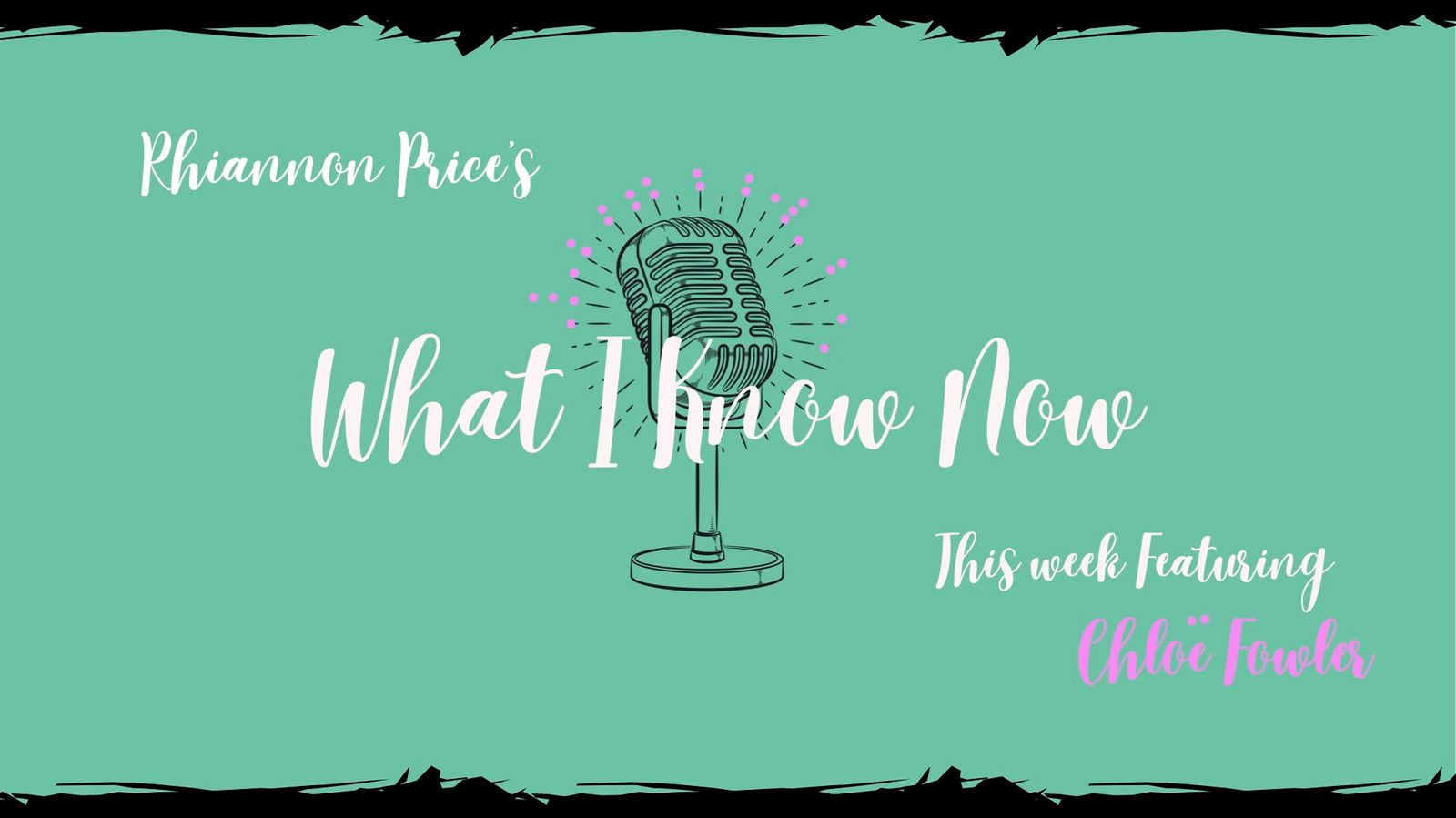
I’m lucky enough to have interviewed some super interesting people throughout my career. People from all over the world. People from all types of professions. People from many different backgrounds. I’ve spent days in their company taking it all in. I’ve seen them laugh, cry, and get angry about the twists and turns their path has taken them on. Be it a South African entrepreneur in Soweto or a Saudi millionaire, I have learned a lot about how people get to where they are going and their advice for life. But until recently, I have never really turned the lens inward. I have never asked my peers or the people I most admire in market research what their advice for life is. How they got to where they are. How they see things. But when I did, I found it wonderfully inspiring and not only a little bit transformative.
And so, I thought it was about time that we celebrated the wisdom of our MRX crowd and let their stories inspire us.
This month I spoke Chloë Fowler - former AQR Chair, co-founder of Razor Research and self-published queer fiction novelist - who spoke to me about taking a leap of faith as a fresh faced researcher, asking the universe for what she wants and why it is so important to be involved in your industry.
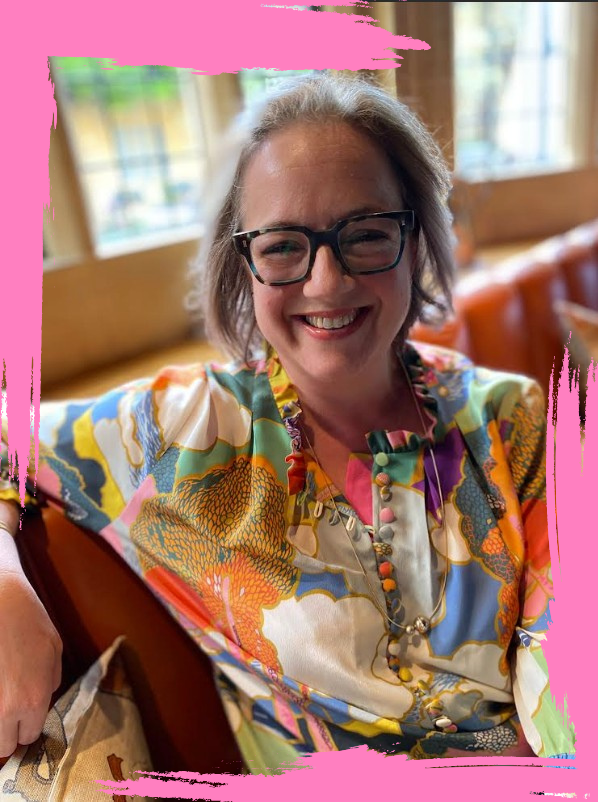
Let’s start like we mean to go on with the “big one at one”…Are you where you thought you would be at this point?
Yes, in that I always thought I would stay in qualitative research. But no, I didn’t think I would be an independent consultant. Having run Razor Research for fifteen years, I assumed that it might take me up to the end of my career. But then on the other hand, there was always a bit of me that thought freedom might be nice. I think the reality is I'm not really a life planner. I've never been a five or ten year person.
The only thing I ever knew was that I didn't want kids. I've never set out to achieve anything by a certain milestone because I think that way you don't enjoy things.
And when you look back now, do you regret any decisions or wish you could have shed a skin and tried a different career?
What do they call them now? Squiggly careers? No, I mean, in an alternative world, I would be a full -time writer in a loft apartment in Santa Fe, being paid a lot of money to appear at literary conferences and talk about my brilliant writing.
But research was a career I wanted to go into, which I know from having read lots of your previous interviews, makes me a little different. And I am proud of having run a company. I'm also proud of having stopped running a company and doing so in what was a graceful and appreciative manner with no bust ups or bad blood.
I suppose the only thing I didn't know was that I would be Chair of the AQR for four years. But I was delighted when it happened.
I'll definitely come back to that because I'm really interested in your involvement in the industry at large. But just going back to how you got into Market Research – why was it a destination career for you?
My father was a Creative Director in an Ad Agency, so he'd always worked with market research, particularly qualitative research. And then in my final year at Bristol, one of my friends was already a Planner at Saint Luke's Ad Agency and I was talking to him about jobs. I mean, nobody's born knowing about market research, but, you know, quite early in my final year at university, I thought, well, that sounds like a lovely sounding job. Then I rang Rose at the AQR - because at that point we actually used telephones - and she sent me the directory of qualitative agencies, which was this massive book. And I literally went through from the first page to the last and I wrote down the names of the agencies that were based in London and had what looked like a funky name.
And I wrote them a stamped letter, as you did twenty-five years ago, saying I'd love to get a job as a Qualitative Researcher and I waited for the letters to arrive back. I think most of them were quite surprised that anybody wanted a job in qualitative research! And I was offered a job at Leapfrog Research & Planning.
So what about this alternate life as an author then?
I took it up writing again when I was forty. It's very much a hobby and I've self-published a novel. But I don’t think anyone makes money out of being a writer unless they're Margaret Atwood or Colleen Hoover - and good on them, but it was never really going to be a career for me.
Tell me about setting up Razor Research…
I had worked in three or four different agencies, including Leapfrog and Firefish. Then I was at Synovate and the boss of my business unit – Steve, who's 15 years older than me - just said to me one day “oh, do you fancy starting an agency up?”. I was nearly thirty. Not married. No kids. He had kids and a mortgage. I rang my mum and dad and I asked them ‘is there any reason not to do this?’ and they said ‘no, go for it.’
But it was never part of the plan. It had never occurred to me that I would run an agency, never in a million years. But I trusted Steve and his vision, and he must’ve trusted me and what I could bring to the party. I was barely a Director in my agency, I had no clients and I had zero business acumen. I mean, I probably still lack a bit in that department, but I loved my job, I love people, I'm good at doing stuff and I've got lots of energy and I think I'm good at inspiring other people to have energy and get stuff done.
Looking back, what does it take to set up your own business?
A genuine sense of fun. Steve and I had an enormous sense of fun between us. And if you want to live a life that contains fun, then your business will also adapt - you will create a business in that mould. And qualitative research in my mind is - at its heart – fun. It’s all about people. And of course, we do Social Research and we research really difficult topics and we talk to people about things that are not fun. But when you are sitting there in a room with your brand new colleagues that you've hired, and you are all engaged in the spirit of wanting to do things that make everybody feel happy every day. Then in some ways, it can't fail. It was never a chore, you know?
But also it needed a real commitment to putting the business first. I think neither of us felt that this was something that we could slot around our lives. I think we knew this was our lives.
And there was a real desire to work with great clients. Clients who were trusting and also fun and human and willing to trust a brand new tiny agency.
It is really interesting you speaking about happiness being at the core, because I don’t actually think all – or even many - business owners are like that. They are motivated by the money and it’s all about the commercials. And it was quite refreshing to hear you talk honestly about not having much business acumen, but that didn’t matter as you had the passion. Why was that mould for Razor Research so important?
I suppose because I see it as a core human value. And work is 60% of your week. It was not that we didn’t know we had to make the money, but it wasn’t the thing I wanted to get up in the morning for and really root for in my soul. And Razor was part of my soul for fifteen years. You can't do that if it's in service to just making money or being the most successful or winning the most awards. Those aren't the things that you take to your grave.
Which is a very privileged position to be in, and I do recognise that. We started our business shortly before the recession in 2007 which meant we were leaner and keener than many larger competitors, so we were able to win business that maybe others couldn’t support.
How have you navigated being a woman in business and what lessons have you learned?
I've been lucky enough that many of my early bosses and mentors were all women. I learnt my craft from some very strong and impressive business minded women. I didn't have the model of only men at the top of the chain. And I would say that although my business partner was a man, he was incredibly empathetic, astute, passionate and never succumbed to what you might think of as any of the more historically ‘masculine’ business traits, which I hope by now are outmoded anyway.
I don’t think I've had to navigate being a woman in this industry. But you've got to acknowledge that with qualitative research we work evenings and weekends, and it would be really naive to think that didn't completely mess up a family life. I suppose as a woman who chose not to have children and a gay woman, I haven't had to worry about those things. If I've wanted to do something, I've been able to do it and I've never had to sacrifice working long hours to manage a family, so I feel like I'm in an unusual position in that sense.
Tell me about life after Razor Research?
We had fifteen fabulous years and at our biggest we were about twenty people. Our greatest challenge was finding senior people who had great client relationships. Because I think for qualitative researchers, it's the client relationship that either makes you or breaks you. I decided to leave during Covid because I wanted to write and because I wanted some freedom in my life. I wanted space from constantly absorbing the anxieties of a team of people who I loved. I was very attached. And then, like children, they come and they go. Well, children don't go, but, these children left!
I was exhausted and didn't feel I could be as wholeheartedly enthusiastic getting up every morning as I had been for fifteen years. And I am a believer that if you're no longer really feeling it in your soul, you leave. And that includes marriages and all the rest of it. But that's for a different interview! I think it's irresponsible to have people's livelihoods in your hands, creating a workplace for them if you don't love it. As how can you expect them to love it?
Let’s move onto your industry involvement – you have talked about being an MRS mentor and you were chairperson of the AQR – how did all this come about?
I feel that this industry has given me everything. I turned up as an unformed twenty year old and at forty-seven, I still love it passionately. It’s enabled me to buy a house, a car, live my life - so the very least I can do is give back to my industry. I have always wanted to be the sort of person that any random person could write to and go “oh, someone's mentioned you might be able to give me some advice on X. Could I have a chat?”. I will always have a chat or two or three with whoever crosses my path, whether it's about starting up as an independent or how to run their own focus groups or whatever it is.
I joined the AQR board because I wanted to be involved. I wanted to organise things like networking events as I like bringing people together so they can be inspired, and maybe they meet somebody who's useful. So, that's been a real pleasure. And then being AQR Chair happened sort of by surprise because I rejoined the Board and the Chair stood down and nobody else stuck their hand up. Then Covid happened and being able to lead the AQR at a time of rapid change in how qualitative research had to function was really exciting. I loved being part of the team that could help the qualitative community survive, that we could do this and that it could be brilliant!
I'm also part of the MRS Pride Steering Committee. I'm very proud to be a gay woman, and if my visibility helps anybody further down the line, then great.
There are many people that just get their head down and do their day job. So why is it important to you to have this involvement?
I think there's a responsibility to make sure you're keeping up with what's going on out there. If you choose not to engage with any of the industry organisations, that's fine. But I think you're missing out on the opportunity to hear about what's going on, or meet the person who could collaborate with you on your next project. It's very easy to just become too busy, too tired, too disconnected. But it's where I get my energy from.
We need people like you, Chloë! You talked about being a gay woman and being part of MRS Pride. Diversity and inclusion is obviously a huge topic for everybody at the moment, but people still find it hard to navigate. Even Jane Frost opened up to me about an instance when she got hauled over the coals for getting it wrong. What are your observations on this?
Look, I think everybody is scared of getting it wrong. And if Jane Frost is scared of getting it wrong, how the rest of us feel is beyond me! I think people who really want to make a stand are braver than me. I'm not really doing that. I feel so achingly conscious of my privilege as a white middle class, single, child free woman, who is also reasonably affluent and owns their own business. To try and agitate for change risks feeling inauthentic. I'm actually on the sidelines of that conversation.
Let’s move onto getting some pearls of wisdom! What is the best piece of advice you have received over the years?
I'm not a spiritual person, but I do believe the universe is listening and I think a lot of us are feeling quite uncertain about our futures either personally - because of our ages and stages in our careers - or because of AI and other changes to the industry, and the world! I do think there is something in telling the universe what you desire, what you need, what you feel you deserve. The universe will listen in some way or another. I just believe in it. It's really funny because I've been thinking very hard about a client recently as I haven't heard from them in a while, and I'm pretty sure that they'll get in touch in the next couple of weeks. I just have faith in the universe.
I also fundamentally believe that you should be as kind to as many people as possible. And I think it's very easy to just focus on clients clients clients. I think it’s all the other people that are so important. I'm a massive champion of fieldwork and recruitment and it should never be forgotten as we rely on them. So be kind to everybody.
And at this point I ask about daily rituals, but you have mentioned you write…
Yes, I write queer fiction novels. My novel is called “King” about an Elvis drag king who loses sight of who she really is.
Sounds great! I imagine writing is a bit of a personal habit that gets you through the stresses and anxieties of life. Have you got any other practises or habits that you do?
I go on the Peloton for at least an hour or two every morning. I do wake up very early and lie in bed for an hour and a half with candles, drinking tea and reading a book. By the time it's 7:30, I've had a lie-in every day. It does masses for my mental health because it is time before any external input. No messages, no emails, no social media.
Every weekend my girlfriend says “could you just stay in bed after 5:30?” as I've got up because my body clock has naturally woken me up. I'll go and sit downstairs for two hours, but I'm like, “come on, wake up. I'm ready to play!”.
I want to ask about your mentors, you have already spoken about Steve Wateridge, what was his mentor superpower?
He understood me. He truly knew who I was and therefore what would be useful guidance for me. He taught me business acumen, which I didn't have. He taught me to try and separate heart from head, but to still have heart. He taught me graciousness, how to create brilliant client relationships. And he taught me how to have a great party. He was – and still is - brilliant.
And the other mentor worth mentioning is Rose Molloy from the AQR. She's been there for thirty years - she was my first phone call to get me into the job and I'll make sure she's my last. Her strength and commitment to an industry that she fell into is unrivalled and I've learnt a lot from her.
What's her mentor superpower?
Her memory, weirdly, as I don't know why that would be a superpower for a career. She also manages to make everybody feel as though they matter and that they're valid. I try to do that too. If something needs doing, she just does it. She and I are ‘doers’ together.
And finally, to end the conversation, some quick fire recommendations.
If you read just one book?
Butcher's Crossing by John Williams. It's a Western about self-sufficiency, adversity and change.
If you listen to just one podcast?
‘99% Invisible’ which is about all the thought that goes into the things we don't think about. The unnoticed architecture and design that shapes our world. Those magical stories where you go “wow, I had no idea”. And that resonates with the work we do because you never know what magical story someone will tell in a group that changes the course of your project.
If you follow just one person?
I don't really follow people.
And if you remember just one thing?
Ask the universe, it will listen.
